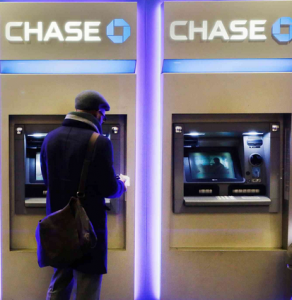Does a profession automatically insulate a person from committing an unethical act? Unfortunately, it does not over the course of time, we have witnessed the clergy, medical doctors, lawyers and stockbrokers all committing fraud even though they take oaths  of all different varieties. When it comes to banking ethics far too often folks have come to expect the worst.
of all different varieties. When it comes to banking ethics far too often folks have come to expect the worst.
Another profession that we have imagined to be above poor ethics is banking. We have been raised to think of the staid banker in his or her smart suit, passing impassive, analytical, numbers-based judgments, as being above scrutiny. They are seen as being honest to a fault and always having our best interests in mind. This is especially true of private bankers who handle the interests of the extremely wealthy. As it turns out, “not so fast.” Unethical behavior, it appears, has well-established itself in the banking industry.
In an article by Claes Bell for Bankrate.com (December 29, 2015) entitled: “Bankers charged in $400K ATM card heist,” we learn that:
“Two New York-based private bankers were charged this month with a scheme that involved using fake ATM cards and other means to siphon more than $400,000 from the accounts of customers at the bank where they worked, JPMorgan Chase, according to a report in The New York Times.
The 2 bankers, Jonathan Francis and Dion Allison, likely chose the accounts based on their large balances and few recent transactions. Eight of the 15 accounts belonged to deceased clients, and all of the accounts were fed with direct deposits from the Social Security Administration, according to the New York Times.”
The bankers, along with others they had recruited, created fake ATM cards. The used the fake cards to pull $300,000 from the accounts, and then they apparently forged other documents to give them the power of attorney to withdraw larger sums. According to the article, there were several cases of bankers stealing money and “identity” from client accounts in 2015, including Medicare fraud
Pardon my skepticism
Pardon my skepticism, but I cannot see the banking industry cleaning up its ethics in 2016 unless a different kind of code is enacted. Despite the thousands of hours of in-house training sessions, private bankers defrauded (and stole) to the tune of millions of dollars in 2015 alone. How does this happen?
To begin with, we must accept the fact that whether an employee cleans dirty football jerseys, operates on spinal cords or is a private banker, given a lack of ethical training and an enticing enough opportunity, unethical behavior can occur. In the case illustrated above, the two bankers realized that they were the “firewall” between the accounts and bad ethics. They felt that the risks were minor and that no one would get harmed by their lack of conscience.
After all, they “reasoned,” in some cases the clients had passed away; people who would never feel the loss from their portfolios. Never mind, of course, that those same clients had spent a lifetime trying to create wealth for their spouses, families and charitable causes. Never mind that as private bankers on those accounts, the bank did make a healthy commission from handling those accounts; they did not do so out of the goodness of their hearts.
It is impossible to say if Jonathan Francis and Dion Allison took annual ethical training doled out by the JPMorgan Chase HR department. If they did, the message never quite reached them. If they didn’t, as a lecturer and instructor on ethics, I cannot imagine why no training was ever given.
In addition, I would want to ask who supervised the two bankers. Did no one question how ATM withdrawals were occurring in accounts where the clients had deceased? Were the account beneficiaries kept so far in the dark that there was no transparency and no opportunity to see what was happening to these accounts?
In the final analysis, this is what occurs when unethical behavior is allowed to flourish and common sense is pushed aside. Even if ethical training could not have changed the course of the criminal activities of these two bankers, it might have prompted better checks and balances within JPMorgan Chase.
YOUR COMMENTS ARE WELCOME!


The unfortunate thing is scamming private customers is pervassive at JPM. The executives demand unethical behavior to increase bank IRR on the accounts to make their bonuses bigger, so the underlings follow suit in their own manner. Trust me….I am one of the one’s scammed by them. The difficulty is private clients can’t speak up, are not sure how to speak up, or just oblivious to the stealing.